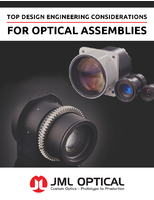Agilent Technologies' New PXIT Modules Provide Cost-Effective Optical Transceiver Test up to 8.5 Gb/s and Beyond
Share:
SANTA CLARA, Calif., Aug. 1, 2007 -- Agilent Technologies Inc. (NYSE: A) today introduced four next-generation PXIT modules for optical transceiver manufacturing. The PXIT family, unique in the manufacturing test industry for having both a combined bit error ratio tester (BERT) and digital communication analyzer (DCA), now provides double the bit-rate coverage and improved performance.
The flexible modular platform allows optical transceiver manufacturers to combine key instruments needed to perform required measurements -- in one mainframe via the same interface. This helps reduce the cost of test and increase production throughput.
"We acquired PXIT in December 2006 to address the requirements of our customers in transceiver manufacturing," said Sigi Gross, vice president and general manager of Agilent's Digital Test Division. "Our customers wanted a smaller, faster, more cost-effective solution. The release of the next generation of PXIT modules builds on all these traits and now provides customers with a solution that can test their next generation of products as well as their previous ones."
Four New PXIT Modules:
o The N2100B PXIT 8.5 Gb/s digital communications analyzer is a 4-slot module that allows customers to perform accurate eye-diagram analysis to characterize the quality of transmitters from 1 Gb/s to 8.5 Gb/s. The N2100B doubles the bit-rate coverage of the DCA and the number of possible filters to choose from.
o The N2101B PXIT 10.7 Gb/s bit error ratio tester is a 3-slot module with a high-accuracy clock source, data-pattern generator and error detector that allows for automatic BER analysis to characterize the quality of devices. The N2101B version has more than doubled the upper line rate performance (10.7 Gb/s) and the number of supported internal lines rates, as well as a lower minimum line rate (155 Mb/s).
o The N2102B PXIT 11.1 Gb/s pattern generator is a 2-slot module capable of generating multiple patterns. The N2102B enables complete coverage from 622 Mb/s to 11.1 Gb/s with improved jitter and transition times.
o The N2099A PXIT synthesizer is a 2-slot module that covers a 2 GHz tuning range and is available at a number of center frequencies: 5.25GHz, 9.4GHz and 10.5GHz. The N2099A is a suitable clock source for the N2101B and N2102B modules when an external clock is required.
U.S. Pricing and Availability
The following new modules are available for order today:
o the Agilent N2100B, starting at $27,000;
o the Agilent N2101B, starting at $35,000;
o the Agilent N2102B, starting at $17,500; and
o the Agilent N2099A, starting at $8,000.
Further information about the Agilent N2100B, N2101B, N2102B modules is available at www.agilent.com/find/pxit.
Images of the Agilent N2100B, N2101B and N2102B are available at www.agilent.com/find/pxit_images.
About Agilent in LXI, PXI, VXI and GPIB
Agilent intends to expand its LXI product offering. We are also adding companies that may offer other I/O solutions, such as PXI, to support customers requiring this architecture for specialized applications. Agilent asserts that LXI is the next-generation, LAN-based modular architecture standard for automated test systems. Learn more via the application note LXI Helps System Developers Go Beyond GPIB, PXI and VXI. Also, listen to Agilent's LXI expert, Chris Van Woerkom, discuss the state of the LXI marketplace and new possibilities in testing using Ethernet by visiting www.agilent.com/find/lxi and clicking on Podcast in the highlights section.
About Agilent Technologies
Agilent Technologies Inc. (NYSE: A) is the world's premier measurement company and a technology leader in communications, electronics, life sciences and chemical analysis. The company's 19,000 employees serve customers in more than 110 countries. Agilent had net revenue of $5.0 billion in fiscal 2006. Information about Agilent is available on the Web at www.agilent.com.




